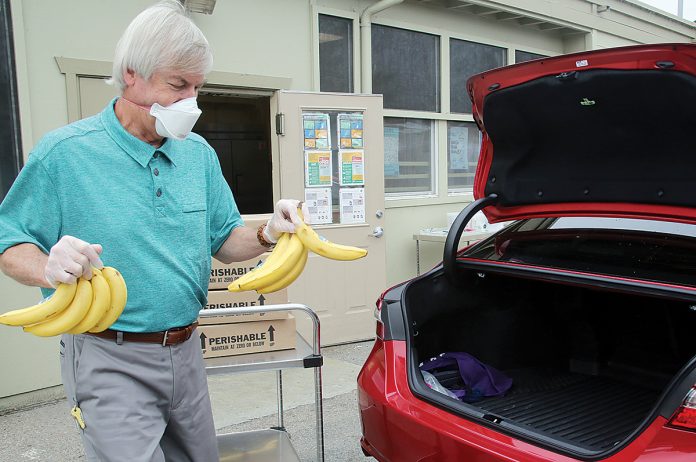
SANTA CRUZ COUNTY—Gov. Gavin Newsom on May 27 released his revision of the California budget, and through it proposed to eliminate funding for Community Based Adult Services (CBAS) no sooner than July 1.
CBAS programs aim to provide seniors alternatives to nursing facilities and other institutions. This includes the Community Bridges organization’s Elderday Adult Day Health Care program, which supplies Santa Cruz County seniors with everything from at-home nursing care to healthy meals.
“Shutting the doors of CBAS affects all generations,” Lois Sones, Elderday Program Director said in a press release. “CBAS serves primarily low-income, Medi-Cal eligible seniors and adults with disabilities. Families of our participants especially need CBAS now so they can return to work to contribute to our workforce and our economy.”
Since the outbreak of Covid-19, the nonprofit sector has been hit hard—and social services, in particular, are looking at major cuts across the board. In Santa Cruz County, the City of Capitola released its proposed budget for the 2020/2021 fiscal year, which included the elimination of funding for all community-based social service providers, including Community Bridges.
It is a move that will have a big effect, as Capitola’s demographic is more than 20% of seniors.
“As we see local jurisdictions propose cuts to community-based organizations at the same time demand for food and support services is increasing, we are faced with tough choices,” said Amy Hanley, Community Bridges’ Marketing and Communications Manager. “We all need to consider the community impact if services or staff are reduced.”
This week, the City of Watsonville released the first draft of its 2020/2021 budget proposal. Watsonville Finance Department Director Cindy Czerwin said the city is rerouting cannabis funds to keep its $200,000 in social services funding intact.
Hanley said that Scotts Valley has proposed similar elimination of services to that of Capitola and that the City of Santa Cruz might not be far behind. The County of Santa Cruz has also proposed a recommended budget for 2020/2021, and funding for its Core Investment Programs was cut by about $83,220.
Karen Delaney, Executive Director of Volunteer Center of Santa Cruz County, said that her organization is bracing for the impacts of such large cuts.
“Whenever there is a disaster… nonprofits like ours are called on to provide more services than ever, but if we lose funding we will be able to do less,” Delaney said. “There will likely be longer waiting lists for Lift Line rides, less meals delivered to seniors… Why are those things less important than cleaning the streets and watering parks?”
Delaney said that jurisdictions might need to rethink how they operate.
“We understand, as a nonprofit, what it’s like to not have enough money,” she said. “I think in the next couple of years, it’ll be time for all institutions to think more like nonprofits. To find creative ways to survive, while supporting their most vulnerable residents.”
Delaney said she has seen a lot of support and generosity on an individual level, with people continuing to volunteer and donate their own funds.
“We have a very generous community,” she said. “People have been overwhelmingly supportive and willing to help. We want to see that on the city and county level, too.”
As for Community Bridges, the organization is looking at ways it can fill the gap in funding to continue its programming, especially Meals on Wheels and Lift Line. They are also urging the community to contact their State Senator and Assembly members to express their opposition to the elimination of CBAS programs.
Hanley said that it was important for everyone—organizations, agencies, municipalities—to find a common ground.
“While we are all in this together, we are not all in the same boat,” Hanley said. “The people that Community Bridges serves… are disproportionately affected by the Covid-19 crisis and they are going to continue to need the support of this community in the coming months. Tough economic decisions loom ahead for all of us, but we urge our local leaders to partner and work collaboratively with nonprofits to ensure that the needs of their residents are met and the services they need survive this crisis.”
Editor’s note: An earlier version of this story mistakenly said the City of Watsonville was slashing its social services funding by $66,000. While the city is reducing its general fund spending for its social services, it is using cannabis tax funding to fill that gap.












